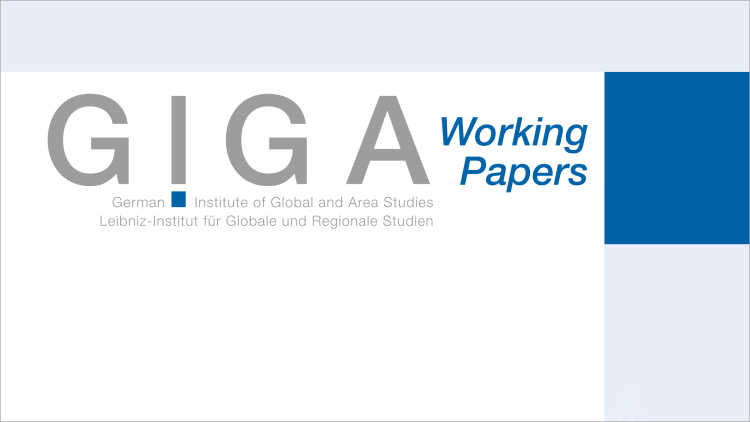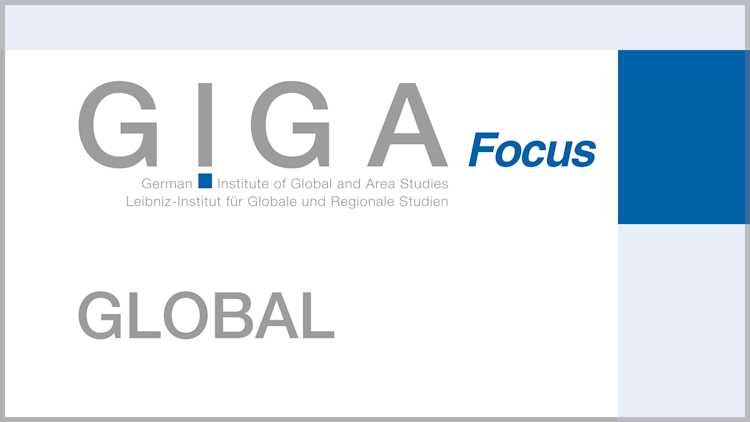- Startseite
- Publikationen
- GIGA Focus
- Youth as a Seismograph for Societal Problems
GIGA Focus International Edition English
Youth as a Seismograph for Societal Problems
Nummer 1 | 2013 | ISSN: 1862-3581
Over the course of the last two years, 2011 and 2012, youths around the world have protested in a variety of contexts and forms. More than the various manifestations of their protests – from political upheaval in Tunisia or Chile to violence in Syria – it is youths’ worries about their own place in society that unify them.
Analysis
Even in the most divergent societies, youth are perceived as a problem group, despite the fact that a consistent definition of what constitutes youth has been absent to date. To base such a definition exclusively on age would be misleading: other factors, for example, social position, would remain unconsidered. No longer children but not yet part of the circle of adults, youths find themselves both physically and socially in a phase of transition. For very different reasons, they rebel against established orders and authorities and question existing boundaries and conventions. However, even under very difficult political and economic conditions, youths only head onto the streets en masse when they see no prospects for the transition into adult life. The forms their protests take reveal fundamental societal processes and problems.
Young people grow up with expectations about the transition into adult life that, because of rapid social change, can now scarcely be realized.
The lifeworlds of youths and their problems with the entry into adult life are, despite all the differences, comparable worldwide.
The mobilization of youths and the nature of their protests are closely connected with the socialization processes and types of cohesion within a society.
Whether and how youth are able to complete central transitions into adult life can serve as an early warning indicator of key societal problems.
Fußnoten
Regionalinstitute
Forschungsschwerpunkte
Wie man diesen Artikel zitiert
Kurtenbach, Sabine (2013), Youth as a Seismograph for Societal Problems, GIGA Focus International Edition English, 1, Hamburg: German Institute for Global and Area Studies (GIGA), http://nbn-resolving.de/urn:nbn:de:0168-ssoar-328037
Impressum
Der GIGA Focus ist eine Open-Access-Publikation. Sie kann kostenfrei im Internet gelesen und heruntergeladen werden unter www.giga-hamburg.de/de/publikationen/giga-focus und darf gemäß den Bedingungen der Creative-Commons-Lizenz Attribution-No Derivative Works 3.0 frei vervielfältigt, verbreitet und öffentlich zugänglich gemacht werden. Dies umfasst insbesondere: korrekte Angabe der Erstveröffentlichung als GIGA Focus, keine Bearbeitung oder Kürzung.
Das German Institute for Global and Area Studies (GIGA) – Leibniz-Institut für Globale und Regionale Studien in Hamburg gibt Focus-Reihen zu Afrika, Asien, Lateinamerika, Nahost und zu globalen Fragen heraus. Der GIGA Focus wird vom GIGA redaktionell gestaltet. Die vertretenen Auffassungen stellen die der Autorinnen und Autoren und nicht unbedingt die des Instituts dar. Die Verfassenden sind für den Inhalt ihrer Beiträge verantwortlich. Irrtümer und Auslassungen bleiben vorbehalten. Das GIGA und die Autorinnen und Autoren haften nicht für Richtigkeit und Vollständigkeit oder für Konsequenzen, die sich aus der Nutzung der bereitgestellten Informationen ergeben.








